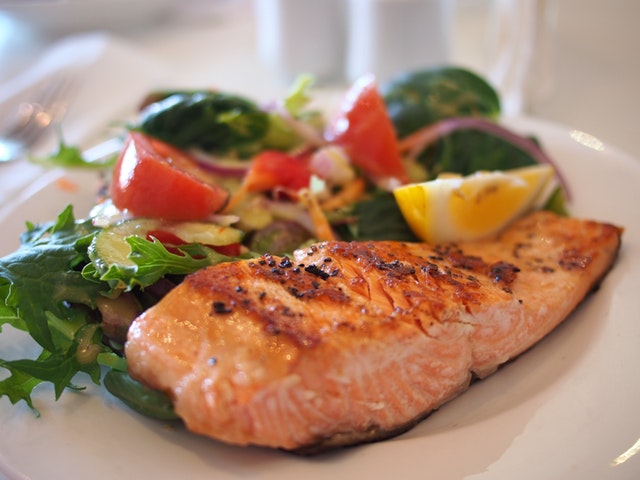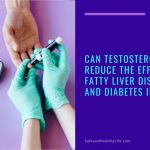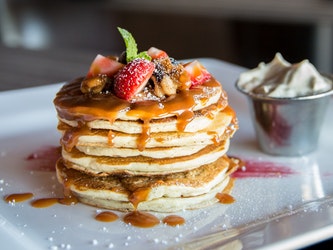
Ever since healthy diets became a fad and everyone became interested in keeping lean, fats have received a bad reputation. The fear is that fatty foods make one add weight as well as contribute to cardiovascular and digestive diseases. Now everyone avoids getting fatty foods despite the vital role they play in your health. A lot of calories are what make people fat when you burn less than what you take in. On the other hand, good fats do not cause cardiovascular diseases, they actually help in keeping the levels of bad cholesterol down. As long as you keep to the recommended levels, you will be able to enjoy the numerous benefits of fats without any negative impact.
The Importance of Fat To Your Health?
You need fats for a number of important body functions. Fats have four major roles no other food category can sufficiently perform.
a) They are the major fuel source of your body. They are also the main way your body stores energy. The good thing is you need a smaller amount of fat to build up your energy stores.
b) They are essential in the absorption into the blood stream of fat-soluble vitamins (A, D, E, K ) and crucial antioxidants like beta-carotene.
c) Omega three fats are essential to the proper functioning of the brain and nervous system.
d) Fats ensure cell structures are well maintained and you also have a healthy skin.
8 Fatty Foods for Your Healthy Meal
Here are eight great food sources which will help you meet your daily needs for fat. It is a list that includes breakfast and snack options as well as main meal additions:
1. Eggs
Eggs are a great food option for a number of reasons. First, they contain more vitamins and proteins per calorie than just about any other food. Once feared because of the fat content in the yolk different studies have proven the fears unfounded. First, there is no suggestion between consuming eggs and an increase in heart disease. Secondly, they are a more filling food especially for breakfast and help you in consuming lesser calories during the day. Eggs also help in the burning of fat because they contain Choline a nutrient which acts as a catalyst to your body’s metabolism. They are also essential for the health of your eye. This is because they contain two antioxidants, Zeaxanthin, and Lutein, which prevent cataracts and macular eye conditions.
2. Pork
Pork has always been a divisive meal source. Despite the different marketing campaigns of pork as the other white meat it always suffers from being lumped together with other red meat like beef and lamb. The truth is, pork is somewhere in between with lesser myoglobin (the protein that determines the color of meat) than other livestock meat but more than that in poultry. With leaner pork meat being produced, you can get to enjoy pork that has less fat than a chicken breast. Pork tenderloin, pork boneless, top loin chop, pork top loin roast, pork center loin chop, pork sirloin roast and pork rib chop have all been classified by the USDA as lean meat. This makes them great alternatives to poultry meat.
Pork meat has a rich content of vital vitamins, proteins, and minerals you need. Vitamins present in high quantities include Vitamin B6, Thiamin, B12, Niacin, and Riboflavin. The iron and zinc in pork are readily absorbed too.
For a great breakfast treat, you can get your own sausage stuffer and make your own sausages at home from the lean pork. There several units you can pick from the market, the sausage stuffer reviews can help you out.
3. Avocados
Avocados make a great addition to nay meal or when eaten as a snack. They are a super food containing different nutrient in great amounts. They are also the only fruit that provides enough amounts of monounsaturated fats. These kind of fats are essential to the functioning of the brain and heart. They also contain carotenoids and antioxidants which are great for eye vision, memory and brain functions, immunity, cancer prevention as well as growth and development. Avocados also come with Vitamins A, E, K, B and C. They also contain lots of proteins and fiber making them good for tissue development and digestion.
4. Nuts
If you are looking for a great snack option which is not a fruit, then you cannot go wrong with nuts. Nuts which come in a wide variety of taste contain fats, proteins, and fiber. They contain unsaturated fats which are good for the heart’s health as it lowers the bad cholesterol levels. They also contain omega 3 fatty acids which are good for the heart and brain. Nuts’ fiber content is crucial because it helps you be full and eat less as well as help with your digestion. Nuts are also a great source of essential minerals like magnesium, manganese, selenium, and phosphorus. They are also rich in antioxidant. The fact that they are varied, versatile and common make them a great food option.
5. Coconuts and coconut oil
Coconuts have previously received a bad reputation for their saturated fat content which makes up about 90% of their content. However, with studies showing little relation between saturated fats and heart disease, in fact, this kind of fats have been shown to reduce the levels of bad cholesterol in the blood. The coconut water has healing properties and is full of potassium, calcium, and magnesium and is a nourishing hydration option then even water. Its electrolyte levels also make it useful for fighting diarrhea. Coconuts contain Vitamins C, B1, B3, B5 and B6. The coconut milk can be used as an alternative for dairy milk especially for those who are intolerant to lactose. Coconut oil also contains lauric acid, an antimicrobial agent which helps destroy bacteria and fungi in the body. Coconut oil also helps with digestion and prevention as well as relieving of digestive tract diseases.
6. Olive and olive oil
Olives and olive oil are a great source of dietary fiber, vitamin E, and copper. They contain numerous fatty acids, iron and many anti-oxidants. The fatty acids present give this food a wide range of anti-inflammatory properties which help in fighting cancer and pain. They are also essential in fighting bacteria in the body. The type of fast in olives also help in maintaining the right levels of good and bad cholesterol in the body.
7. Poultry
Poultry is the most preferred food here largely because of its low-fat content. It contains high-quality protein, lots of vitamins like Vitamin C, Thiamin, B-12, K, E and several others. It also has a high content of minerals especially calcium, phosphorus, and potassium. Poultry fat is also good so you should not feel guilty of eating the sweet skin parts. It has both polyunsaturated fats as well as monounsaturated fats. These are vital in keeping healthy levels of cholesterol in the body. They also contain essential fatty acids not manufactured by the body as well as Omega-3 and Omega-6. These nutrients are essential for optimal functioning of the brain, making of tissues as well as heart health.
8. Butter
Butter is another food that has received a bad reputation due to its large fact content. Like many foods in this list, many reports have come to prove that the food does not lead to poor heart health. Instead, when taken in right amounts, good unprocessed butter has several major health benefits. Butter is a rich source of vital vitamins like Vitamin E, K, and A. It is also a rich source of selenium. Butter contains essential fatty acids like Linoleic acid which is a powerful anti-cancer agent and also boosts the body immune. It also contains lauric acid which helps fight fungi and bacteria in the body.
Conclusion:
As seen above, many fatty foods have so many nutrients and benefits than the risk they are mostly wrongly feared for. It is all a matter of moderation and keeping a balanced diet.
About The Author:
Camelia Brown is a mom, a wife and a blogger that has the big passion in cooking, cleaning house and take care of the family. Understand the difficulties in cleaning house process and the importance of cleaning tools in daily life. Her blogs Best Vacuum World was created to help others in picking the right vacuum and house appliances.




